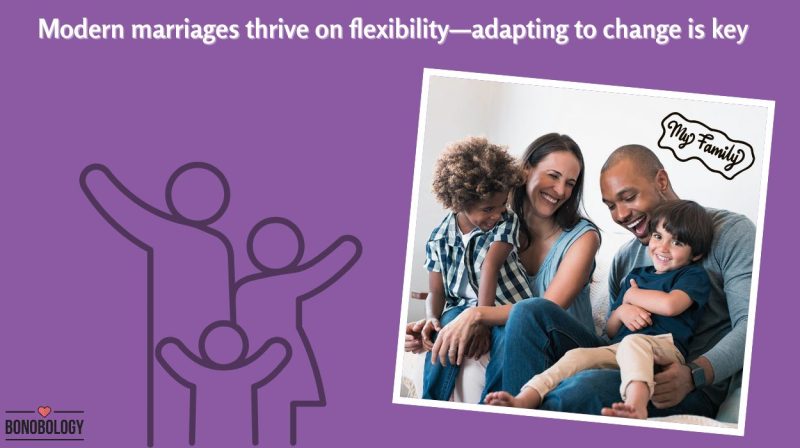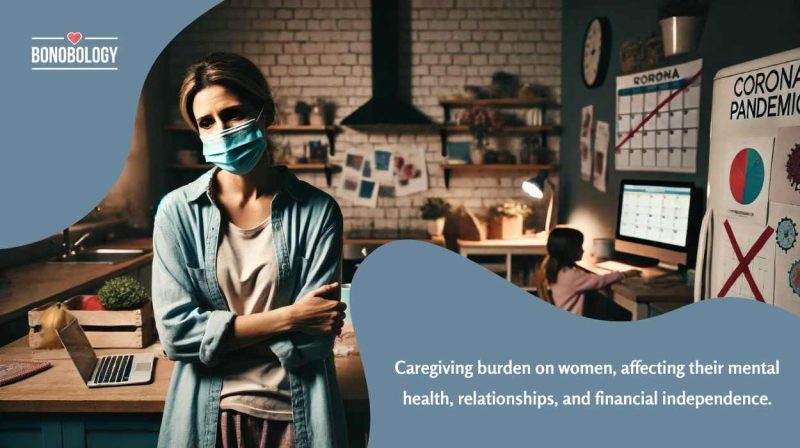Marriages are hard. The long-term commitment and being responsible for not just yourself but a slew of other people can get difficult to maintain for anyone. But do the couples of today have to deal with newer demands? And do the changes in family structure have anything to do with it. We decided to speak to an expert.
Recent Changes In Family Structure And New Marriage Demands
Table of Contents
Salony Priya is a counseling psychologist with 18 years of experience in training and counseling across educational institutions, social organizations, NGOs, and the corporate sector. She is the Director of UMMEED, a multispeciality positive psychology institution. And this is what she had to say about the changes in family structure and the shift in what marriages demand of couples of today.
What are the biggest issues that people come to you for with their marriage? Has the trend changed in the last 17 years?
The issues have become much more frequent. There is a higher incidence of individuality not being accepted in a relationship. The transition in our society – from joint families to nuclear families, from a slow-paced life to fast-paced lives where we need speedy success, traveling, and entrepreneurship as part and parcel of life – has brought a lot of new kinds of demands on relationships.
“Evolving family dynamics require adaptability and open communication.”
The changes in family structure over time have just added to some of these problems. Multitasking has become a norm for both men and women. Most people who come to me are in their late 30s to early 40s, and or early 20s to 30s.
Related Reading: 12 Signs Your Marriage Is Over
Let’s talk about the issues that couples in the late 30s to early 40s come to you with…
The major issues vary with gender. According to Salony, for most women, it is an identity issue: “I am an educated married woman, I gave a lot to this relationship, and today I am a homemaker. Both my children are grown up and now it’s a complete vacuum.” And the sense of vacuum that they feel hurts more because their partner is most insensitive.
The insensitivity of urban Indian married men to changes in marriage is a big issue. A lot of them are yet to consider their wives as partners. The women feel, “I have been taken for granted because I have sacrificed so much and it has not been acknowledged or respected. I don’t see any reason for me to keep doing it. Now the children have grown up, why can’t I break off this relationship?”

The men’s issue is that they have looked at their role in a marriage as a provider, so they feel, “I have given her everything. I have given her a car, I have given her a driver, I have given her money and I have given her freedom. I don’t know what her problem is. She only cries, she only cribs.”
Often I’ve seen that the husband is clueless about his wife’s emotional pain. If the woman says she needs companionship, the man says, “What do you mean by companionship? I am there in the house.” She points out, “Yes, he is there in the house, behind the paper; with the teacup in his hand that is supposed to be at the exact temperature he likes – which I have been giving him for the past 30 years and so he doesn’t understand what’s the big deal.
I will keep doing it, but now it is nagging me and now I ask myself why I am so upset about it after 30 years. Maybe I was busy with kids, my parents were alive then; now that all these support systems have gone, I feel very, very lonely.”
What about the issues with younger couples? What are the men in their 20s like?
For younger people, couples’ issues are centered around compatibility, career, life adjustment and relationship. Many of the men are extremely adaptable; they take their roles as fathers much more seriously than their fathers did 20 years ago. They have become much more accepting of working women.
Related reading: It took 7 years for me to find acceptance, love and respect in my marriage
In your experience, do marriages work better when both the partners are working?
That is very difficult to say because marriages don’t work or not work because of anybody working. Marriages work when people respect each other when people are compatible when people develop some kind of companionship and respect for each other. And respect is a component of any relationship.
Because of the newer, different family structures, we now have a generation of people who have been single kids. Instant gratification has been a part of life. You have two people (your parents) who have been doting on you and fulfilling all your needs, then you get married to some guy who cares for you, loves you, but can’t be like your mother and father – fulfilling all your needs.

Emotional skills are very important – handling your own emotions in a better manner. When your partner is emotionally unstable, has never been independent, never been responsible, the only way they derive pleasure is from constant pampering by somebody. When such couples get married they have nothing much to engage in. You can go for a honeymoon, you can go for four holidays in a month, but at the end of the day, you will have to engage yourself.
The wrong kind of parenting leads to this kind of emotionally unstable, insensitive behavior, especially when parents have not made sure that their son or daughter is emotionally or socially well equipped. Such a child gets into a relationship and causes problems for another 20 people (statistically, one marriage affects 20 people).
FAQs
Over time, families have stopped being joint and turned nuclear. So, this evolution of family structure has led to people going from living in a house with 15 people with various needs and wants while acting as a massive support system to 3 people families. Considering how family structure has changed, the dynamics of family relationships have changed, leading to problems in marriage.
Lack of understanding or empathy in partners when it comes to acknowledging their spouses’ individuality. People do not want the same things they wanted before. They desire different things from their partners. Gender roles in marriages have been shown to be problematic. With the rules and dynamics of family changing, it has become for spouses to be aware of their partners’ worries and needs.
Final Thoughts
The changing landscape of family structures and marital demands reflects the evolution of society, where traditional roles are being redefined to embrace individuality, shared responsibilities, and mutual growth. While these changes present unique challenges, they also offer opportunities for couples to build stronger, more adaptable relationships. Open communication, emotional intelligence, and a willingness to grow together are essential for navigating this new era of marriage and family life. Our expert therapists are here to help. We offer personalized guidance to help couples and families adapt to changing roles, overcome challenges, and strengthen their bonds.
Your contribution does not constitute a charitable donation. It will allow Bonobology to continue bringing you new and up-to-date information in our pursuit of helping anyone in the world to learn how to do anything.























Featured
Lying By Omission And Its Consequences On Relationships
I Don’t Trust My Boyfriend – 9 Probable Reasons And 6 Helpful Tips
What Is Breadcrumbing In Dating? Signs And How To Respond To It
The Role Of Self-Esteem In Relationships – Take This Test To Assess Yours Today!
Do Long-Distance Relationships Work?
How To Deal With Someone Who Blames You For Everything — 21 Sensible Ways
Does The No Contact Rule After Break Up Work? Expert Responds
Stereotyping Men: Why It’s Time To Think Outside The ‘Man Box’
Why Is Being Single Looked Down Upon? Decoding The Psychology Behind Judgment
Broken Heart Syndrome: When Your Heart Breaks, Quite Literally
15 Tips To Keep A Relationship Strong And Healthy
Attachment Styles Psychology: How You Were Raised Affects Relationships
The Burden of Care, an Often Overlooked Impact of the Pandemic on Women
Marriage Counseling – 15 Goals That Should Be Addressed Says Therapist
Post-Wedding Depression: I Was So Depressed I Tried To Commit Suicide
9 Proven Benefits Of Counseling – Don’t Suffer In Silence
Giving Too Much In A Relationship? How Much To Give Of Yourself
Dating As A Single Mom – 9 Tips
Having a Relationship With An Introvert? 7 Tips For Dating An Introvert
How To Watch Out For The Relationship Red Flags – Expert Tells You